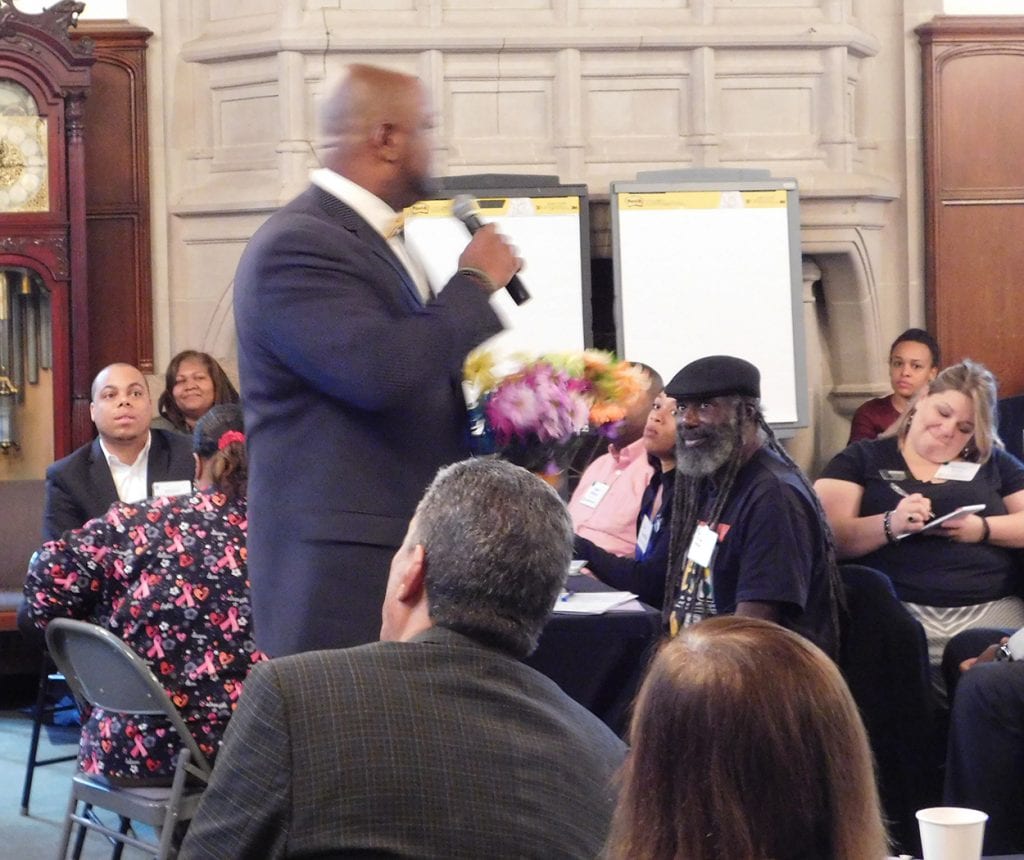HomeGrown STL is close to putting its strategy for collective impact to work in St. Louis. The project, part of the Center for Social Development’s Race and Opportunity Lab, aims to support the social mobility of black boys and men between the ages of 12 and 29 in St. Louis City and County.
“We want to work and build a strategy to reach into those homes on the ground,” Sean Joe, PhD, who leads HomeGrown STL, told dozens of participants during an October 12 networking breakfast at the George Warren Brown School of Social Work. The morning’s topic was “Healing Policies for Black Boys and Young Men in the St. Louis Region.”
Joe said he and his research team have identified six ZIP codes “as the most challenged” in St. Louis. Those neighborhoods are home to 8,000 black males. By monitoring the progress of the children and young men over a three-year period, HomeGrown STL will be able to see if the group’s strategy works in the real world.
Political leaders at the event said some progress is being made. Missouri Sen. Jamilah Nasheed (D-St. Louis) recalled convincing then-Mayor Francis Slay three years ago to “ban the box” when hiring city workers. Ban the box is a term for no longer requiring applicants to check a box if they’ve been convicted of a felony. Last year, then-Gov. Jay Nixon did the same regarding applications for state jobs. “What I’ve been trying to do is deal with systemic problems,” Nasheed said.
Much work lies ahead. “Our children are not being educated,” Nasheed said. “And, as you well know, if they’re not being educated, they’re going to be incarcerated. There’s no in between.”
Jennings School District’s safety and security director, Leon Hite, brought flowers—and a body bag— to the event.
“I brought the flowers to let you know we’re married to doing this,” he said. “This is a calling.”
Then, unzipping the bag, he told the crowd he was tired of hearing that sound, tired of what it represented for so many young lives. “So get married to the situation,” he added.
The situation for many black boys and young men in St. Louis, speakers said, is more than a need for better education and access to jobs that pay a living wage. Many have mental health issues because of experiences in their neighborhoods.
“We are in crisis right now,” said James Clark, vice president of outreach at the nonprofit Better Family Life Inc. “The depth of their mental dysfunction is much greater than any of us can believe or understand. And the forecast is not for it to get better. The forecast is for it to get terminally worse unless we take this project and we take this model very, very seriously.”
HomeGrown STL’s next networking breakfast is on December 7. Its second annual Regional Summit is on February 8, 2018. For more information, please contact homegrown@wustl.edu.
To see photos from the networking breakfast, please click here.
Read the full article here:
